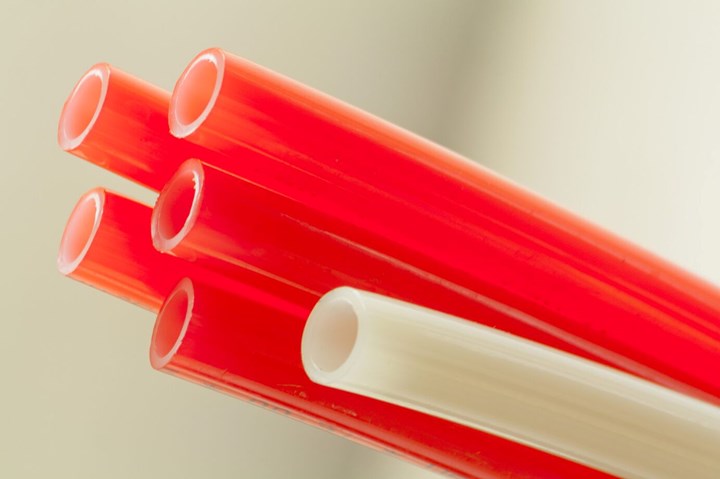Plasticizer-Free Proprietary Long-Chain Nylons
NPE 2024: NYCOA highlighting proprietary NXTamid L as a sustainable replacement to nylons 11 and 12.

A plasticizer-free proprietary long-chain nylon from Nylon Corp. of America (NYCOA) has been developed as a more sustainable replacement for nylons 11 and 12. The company collaborated with some of the largest end users of long-chain nylon resins to develop an alternate solution which offers several advantages over the traditionally imported resins. Over the decades, OEMs and processors have been forced to rely on imports from Europe and Asia which not only carry costly tariffs but have also been affected by shortages and supply chain disruptions. NYCOA’s NXTamid L portfolio consists of grades designed and optimized for various applications and processing technologies such as injection molding, extrusion, rotomolding and blow molding.
Depending on the application, NXTamid L has been shown to deliver performance that is equivalent or better than traditional nylon 12 and nylon 11 resins, while also offering a broad range of customization options. The material has a higher service temperature than nylon 12, while offering a great degree of flexibility and chemical resistance. It is also more sustainable with some grades having biocontent exceeding 50% of the material composition. NXTamid L’s biggest advantage is that end users have an option to go completely plasticizer-free without compromising on mechanical properties. The materials boasts better long-term stability compared to other plasticized long-chain nylons. Some other benefits are higher melting temperatures, lower moisture absorption and better dimensional stability than nylons 12 and 11. The material’s dimensional stability is another important characteristic that differentiates it from short-chain nylons such as nylon 6 and 66. Its excellent chemical resistance to various alcohols, industrial chemicals and zinc chloride is said to make it well suited for the transportation and tubing markets.
Related Content
-
First Quarter Looks Mostly Flat for Resin Prices
Temporary upward blips don't indicate any sustained movement in the near term.
-
Part 3: The World of Molding Thermosets
Thermosets were the prevalent material in the early history of plastics, but were soon overtaken by thermoplastics in injection molding applications.
-
Lanxess and DSM Engineering Materials Venture Launched as ‘Envalior’
This new global engineering materials contender combines Lanxess’ high-performance materials business with DSM’s engineering materials business.





